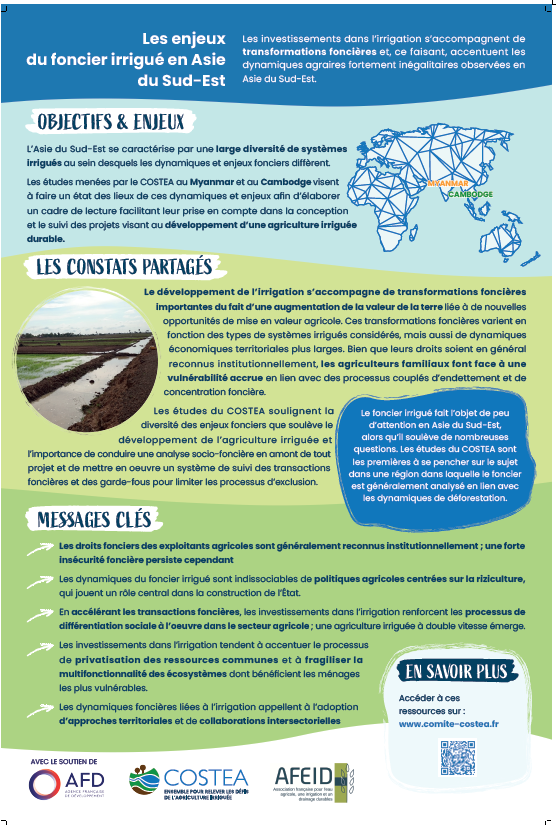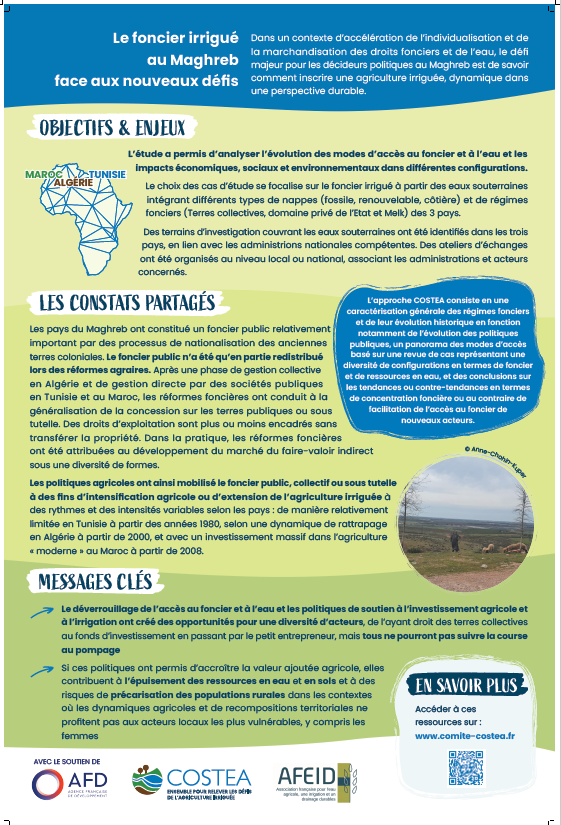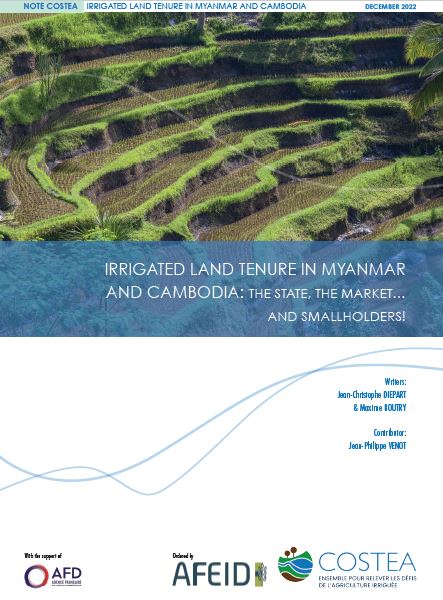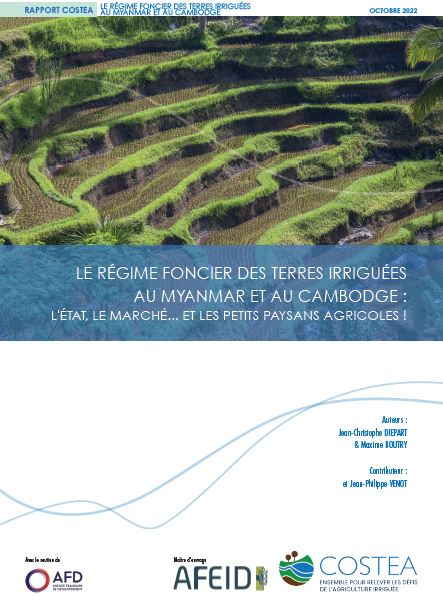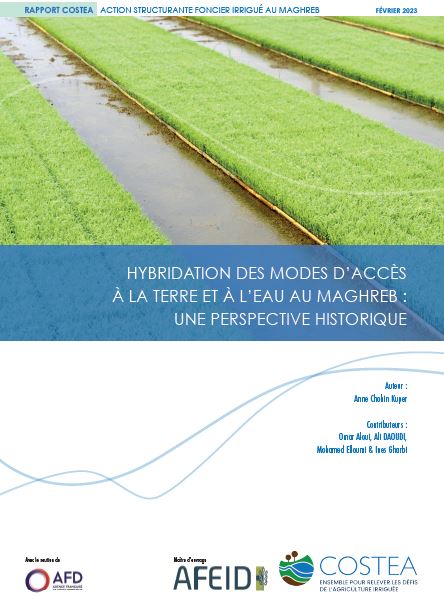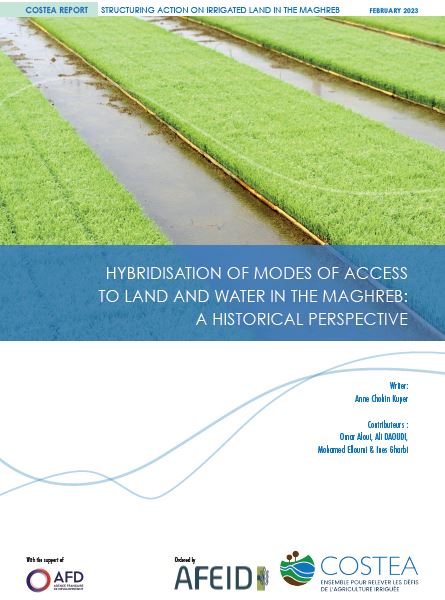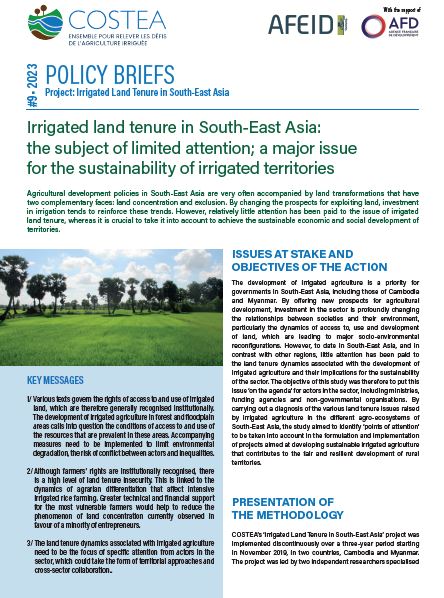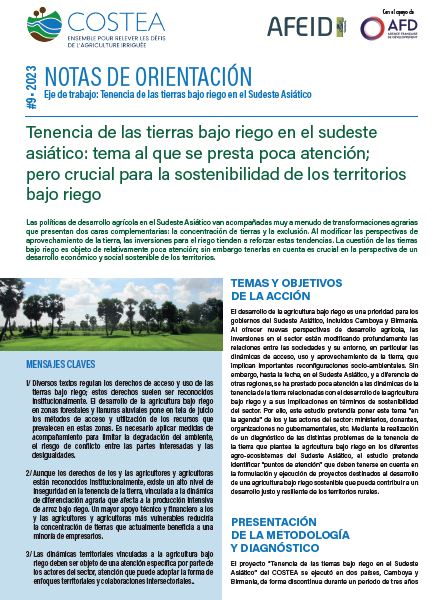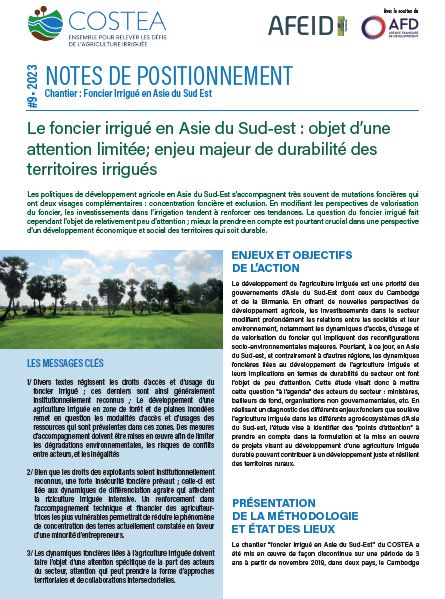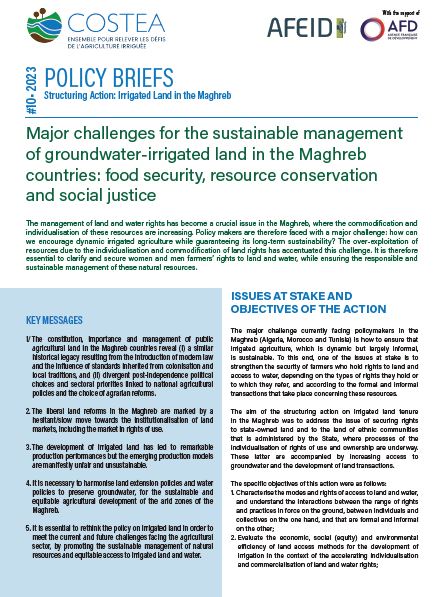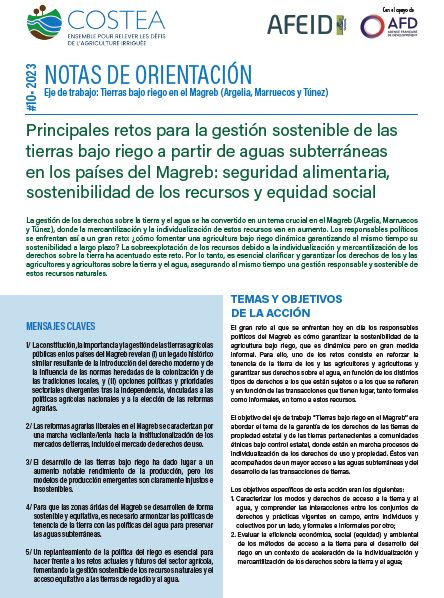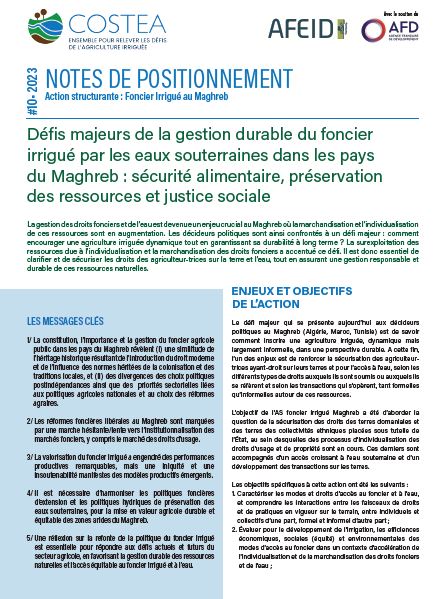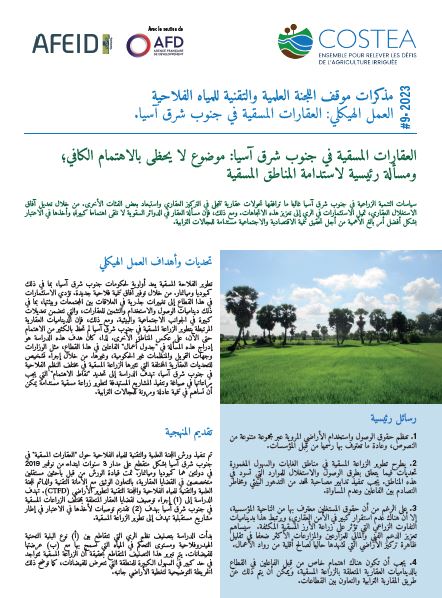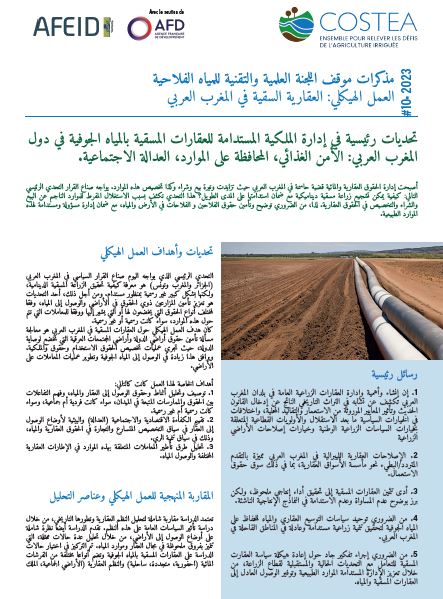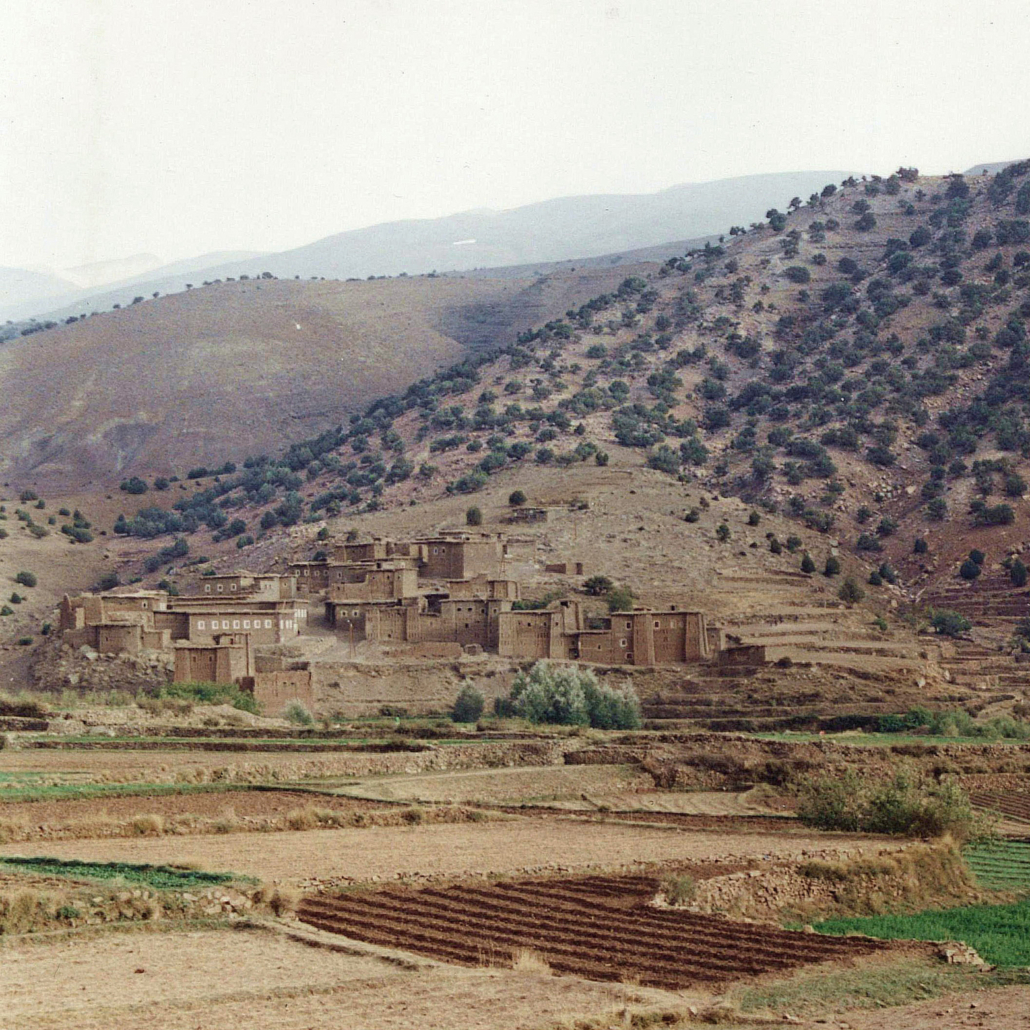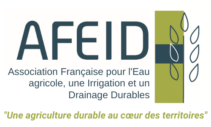Irrigation and land tenure
Our main publications
Click on the images to download the final report of the project carried out in South-East Asia and the posters on both projects.
Why irrigation and land tenure?
Investments in irrigation lead to a de facto increase in land value. This can trigger a race for agricultural land to the detriment of small family farmers who depend on this land for their livelihoods and other economic activities. Investments in the rehabilitation or construction of new irrigation infrastructures are also often accompanied by the displacement of populations that must be fairly compensated, both for their losses during the construction phase but also in a sustainable manner once the infrastructures are operational. The various parties involved in irrigation have designed and implemented various rules for compensation, and for the allocation and management of irrigated land, that need to be studied and evaluated from the standpoint of social, economic and environmental sustainability.
What do we do?
We examine the different irrigation development models by looking at them from four dimensions:
- The legal dimension: respect and protection of rights in their diversity, possible revision of land tenure systems, tools to be promoted to secure land rights;
- The governance dimension: the process for allocating plots of land, the systems of the actors present and their roles, mechanisms for drawing up and monitoring compliance with the rules governing irrigation schemes;
- The economic dimension: size of plots and their integration in production systems, viability of the farms set up, support measures planned to promote their economic performance;
- The political dimension: choice of types of agriculture to be encouraged by projects and justification thereof, frameworks for discussion and action by national decision-makers and donors.
Our study zones are South-East Asia (Cambodia and Myanmar) and the Maghreb (Morocco, Tunisia and Algeria)
The project in South-East Asia, launched in November 2019, was carried out in collaboration with independent experts and completed in December 2022.
The Maghreb project, launched in August 2021, was entrusted to the Agro Concept consultancy firm and to three pairs of national experts. It is currently being finalised.
FURTHER READING
SOUTH-EAST ASIA LAND TENURE PROJECT:
The preparatory document:
The deliverables produced:
- Report: Irrigated Land Tenure in Myanmar and Cambodia (in English)
- Study on Irrigated Land Tenure in Cambodia (in English)
- Final Report for the Cambodia Project (in English
- Final Report for the Myanmar Project (in English)
- Interim Report for the Cambodia Project (in English)
- Report of the Coordination Committee meeting on the territorial approach (in French)
- First articles published for the special issue of Cahiers Agricultures (in French)
MAGHREB LAND TENURE PROJECT:
The preparatory document:
The deliverables produced:


